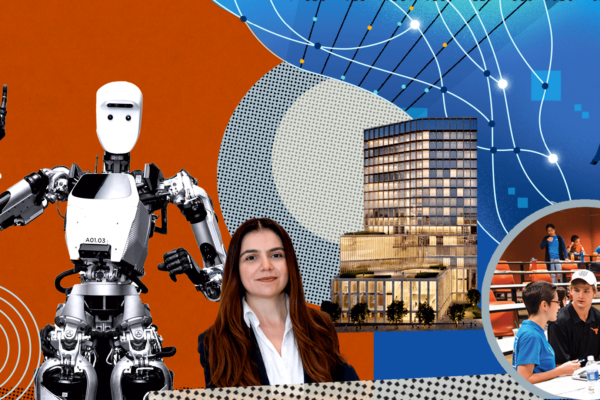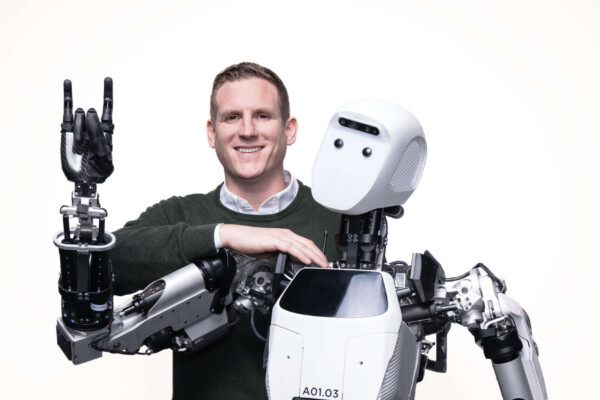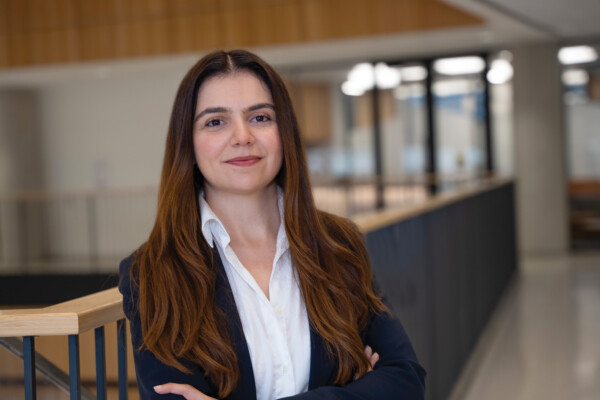UT Goes Big: The Year of AI
The University of Texas at Austin has been a leader in artificial intelligence for more than 50 years — some of the earliest pioneers in the field worked on facial recognition technology and natural language processing during the 1960s — but the global attention on it this past year led the University to designate this year as the Year of AI.
The University has invested in its people and its facilities, bringing hundreds of faculty, staff, and students to the Forty Acres to study AI and its related fields. It has opened dozens of labs and research centers, with the latest being the supercomputer-fortified Center for Generative AI.
“Artificial intelligence is fundamentally changing our world,” says UT President Jay Hartzell, “and this investment comes at the right time to help UT shape the future through our teaching and research.”
The Texas Advanced Computing Center will host and support the AI center’s computing cluster, called Vista. It is among the largest in academia and contains 600 NVIDIA H100s graphics processing units, which are ideal for training AI models.
“World-class computing power combined with our breadth of AI research expertise will uniquely position UT to speed advances in health care, drug development, materials, and other industries that could have a profound impact on people and society,” Hartzell says.
To bolster its 2024 initiative, the University will also be attempting to recruit more of the world’s best and brightest professors in AI and data analytics. The multimillion-dollar program will support the addition of tenured, tenure-track and professional-track positions, creating hiring opportunities for all UT’s colleges and schools.
During the past few years, the University has remained at the forefront of AI research and education in other ways too. In January 2023, it started the online master’s program in AI. In 2022, a $10 million gift launched a new partnership in computational oncology and machine learning, and another donation created new research pathways for AI in the Chandra Family Department of Electrical and Computer Engineering.
In 2020, the National Science Foundation selected UT to lead the $20 million NSF AI Institute for Foundations of Machine Learning. At the same time, the University established the Machine Learning Laboratory with a $5 million alumni gift. And in 2019, the University launched Good Systems, a cross-campus grand challenge initiative aimed at designing ethical AI technologies that benefit society.
Learn more about the Year of AI: yearofai.utexas.edu.
About this Post
Share:








